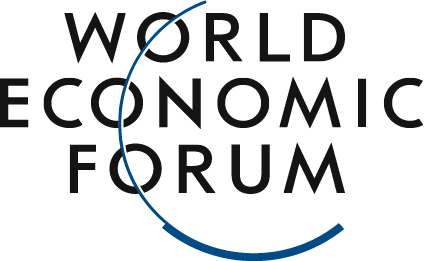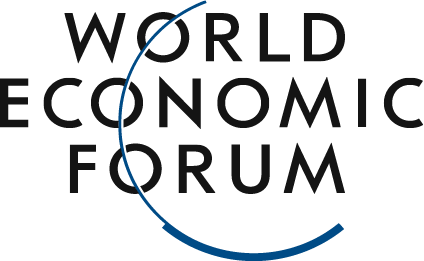Preventive approaches to addressing mental health crises require the collaborative efforts of numerous stakeholders from various sectors.
Image source:Shutterstock/Pressmaster
Robert C. Garrett
CEO of Hackensack Meridian Health
Mental health disorders are a major contributor to the global disease burden, yet funding and healthcare services in this area remain severely limited.
There is a shortage of mental health professionals, leading to excessively long wait times for patients seeking care—resulting in more individuals turning to emergency departments for help during mental health crises.
Integrating behavioral health into primary care, leveraging artificial intelligence technologies, and prioritizing workplace wellness are all powerful solutions.
Currently, the world is facing a mental health crisis, with some studies estimating that one in every two people globally will experience a mental health disorder. According to data from the World Health Organization (WHO), mental health disorders now constitute a significant and growing component of the global disease burden—depression alone has already become a leading cause of disability worldwide. Despite the widespread impact of mental health issues, governments on average allocate only 2% of their healthcare budgets to mental health care, while many low- and middle-income countries invest even less than 1% in this critical area.The long-term shortage of qualified mental health professionals is exacerbating the issue. Although mental health disorders account for 10% of the global disease burden, only 1% of healthcare workers worldwide specialize in mental health care. The U.S. Health Resources and Services Administration predicts that by 2030, the number of psychiatrists will decline by 20%, potentially leaving millions of patients without access to timely treatment.Mental health is central to everyone's life and should also be a top priority for each individual. Addressing the mental health crisis through preventive approaches will require collaborative efforts from stakeholders across various industries—expanding access to mental health care, removing barriers to treatment, and implementing patient-centered solutions.Expanding access and availabilityAccessing qualified mental health professionals remains a global challenge; for instance, in the United States, the average wait time for mental health appointments reportedly exceeds two months. This growing gap is now directly contributing to a surge in mental health-related emergency room visits—nearly one in ten ER admissions at U.S. hospitals is for mental health treatment. To address this critical issue, we must embrace innovation by integrating behavioral health into primary care, rather than treating it as a separate medical category. Such integration not only enhances patient outcomes and boosts treatment adherence but also helps reduce healthcare costs and alleviates the pressure on clinicians.Integrating behavioral health services into primary care can address two major barriers: the shortage of mental health professionals and the stigma surrounding psychotherapy. Hackensack Meridian Health has already begun embedding behavioral health services in its primary care facilities, expanded access through telehealth, and launched the nation’s first Behavioral Health Emergency Care Center—providing walk-in services for mental health concerns when traditional healthcare settings are unavailable. This groundbreaking model has significantly reduced wait times, minimized non-emergency emergency room visits, and slashed emergency care costs by more than 50%.Leveraging artificial intelligence and technological advancementsArtificial intelligence has the potential to revolutionize mental health care—whether by advancing early detection methods, tailoring personalized treatment plans, or expanding access to care. It can help streamline healthcare workflows, provide valuable insights from patient data, and ultimately enable better-quality care. By leveraging AI algorithms, we can analyze vast, diverse datasets to gain deeper insights into the prevalence and risk factors of mental illnesses, including enhancing our understanding of biomarkers. Moreover, AI tools can significantly reduce manual workloads, allowing mental health professionals to focus more on delivering compassionate, person-centered care while effectively monitoring treatment progress and medication adherence.However, as with any AI application, we must remain vigilant about potential ethical concerns—such as data privacy and algorithmic bias—to ensure these technologies are used responsibly and in the best interests of patients.Addressing social determinantsHealth-related social determinants—such as socioeconomic status, transportation, access to healthy foods, clean water, and safe living environments—significantly influence mental health outcomes. Research consistently shows that individuals with lower socioeconomic status are at a higher risk of developing mental health conditions like depression and anxiety.Health literacy and education also play a critical role in the mental health system. Economic instability may be one of the biggest barriers to accessing mental health care services, as insufficient insurance coverage and high out-of-pocket expenses contribute to low treatment rates.Digital platforms are helping us identify individuals with unmet social needs who may have previously gone unnoticed, flagging issues such as food and housing insecurity, transportation challenges, mental health concerns, addiction problems, and caregiver stress. Since 2021, Hackensack Meridian Health has conducted 1.8 million screenings and provided 4.4 million referral connections to community service organizations—a strategy that’s playing a key role in narrowing healthcare disparities tied to race, ethnicity, and socioeconomic status.Establishing mental health as a core value in the workplaceIn the healthcare sector, prioritizing employees' mental health is especially crucial. Many caregivers are not accustomed to seeking help, yet we recognize that numerous professionals experience burnout due to challenges such as staffing shortages, long working hours, and demanding work environments—leading many to leave the medical field altogether. Before the COVID-19 pandemic, over 50% of clinicians reported feeling burned out; however, in the first year after the outbreak, this figure surged to 76%.AI tools are helping to tackle some of the challenges that contribute to clinical burnout by automating physically demanding and repetitive tasks, such as electronic health record data entry and insurance company pre-authorization requests.In HackensackAt Meridian Health, we prioritize the well-being of our team members by investing in initiatives like creating on-site "safe spaces" specifically for clinical teams—providing them with access to mental health professionals who help alleviate stress. In the first two years alone, this program has already delivered therapeutic services to 1,500 employees. Additionally, we’ve expanded our Employee Assistance Program by launching a 24/7 helpline and are piloting an innovative Whole-Nurse Rounds Team initiative, training nurses to lead mindfulness and meditation sessions right in the workplace.Improving mental health is a global priority that requires collaboration among healthcare providers, policymakers, and community organizations to support early interventions and remove barriers to accessing relevant services. Overcoming these challenges hinges on integrating behavioral health as an integral part of primary care and prioritizing employee well-being in the workplace. Meanwhile, cutting-edge technologies like AI tools can play a crucial role in identifying risk factors, enabling continuous care, and ultimately enhancing patient outcomes—thereby accelerating progress toward this vital goal.
The above content solely represents the author's personal views.This article is translated from the World Economic Forum's Agenda blog; the Chinese version is for reference purposes only.Feel free to share this in your WeChat Moments; please leave a comment at the end of the article or on our official account if you’d like to republish.
Translated by: Sun Qian | Edited by: Wang Can
The World Economic Forum is an independent and neutral platform dedicated to bringing together diverse perspectives to discuss critical global, regional, and industry-specific issues.
Follow us on Weibo, WeChat Video Accounts, Douyin, and Xiaohongshu!
"World Economic Forum"





